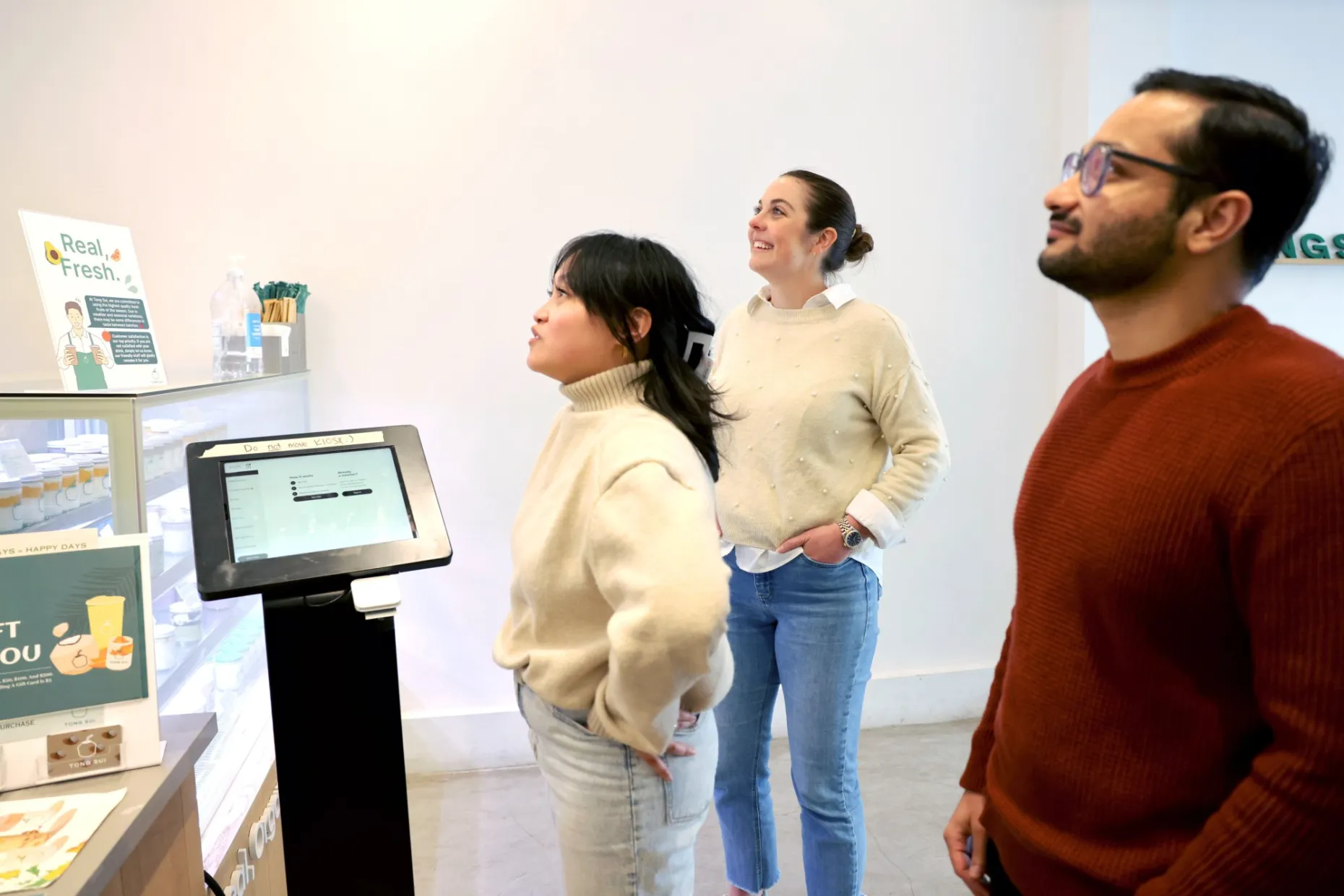The ways in which a tech company’s benefits support Bay Area businesses and foster social connections

In Silicon Valley, where every problem seems to have an app solution, Verkada, a security tech company, is taking a different approach to tackle social isolation and support small businesses. Their unique work perk, known as the “3-3-3” program, encourages employees to go offline and back to basics.
Here’s how it works: After 3 p.m., three or more employees can spend up to $30 collectively on food and drinks at nearby businesses within walking distance of Verkada’s downtown San Mateo headquarters.
The initiative comes at a time when social isolation and loneliness have gained national attention, with San Mateo County recently declaring it a public health emergency and committing $1 million to combat the issue. Meanwhile, many small businesses are still struggling to adapt to a business environment where their usual customers are working from home.
Verkada believes that the “3-3-3” program not only helps address these societal challenges but also benefits the company by keeping employees motivated and fostering camaraderie in the workplace.
“We’re in the office five days a week, and we do the ‘3-3-3’ because we believe that it’s great for people’s careers and it’s good for the company,” explained Kameron Rezai, Verkada’s chief financial officer, who helped establish the program last April. “The second piece of feedback we got was people were kind of using it as an opportunity to connect across departments.”
Verkada’s clientele largely consists of small businesses, so the company naturally wants to support its neighbors, Rezai noted. “Many of our customers are small hamburger chains or ice cream shops. It’s the bread and butter of who we sell to,” he said.
Originally developed in CEO Filip Kaliszan’s San Mateo living room in 2016, Verkada has grown to have 16 offices worldwide, including in Tokyo and London, all of which now participate in the 3-3-3 program.
Despite its global expansion, Verkada remains deeply rooted in the San Mateo community, according to Rezai. “We’ve also decided our HQ would always be in downtown San Mateo. We feel connected to the restaurants and bars and the other places that are here. Many of them also happen to be customers, so it’s important to us to try to be connected to the community,” he said.
The headquarters currently employs a little over 1,100 people, and Verkada has spent over $300,000 at various businesses in the neighborhood.
Some of the employees’ favorite spots to use their 3-3-3 perks are the numerous boba, or bubble tea, shops around downtown.
One such shop is Tong Sui on South B Street.
Founded in Sunnyvale, the San Mateo branch of Tong Sui opened during the later stages of the 2021 pandemic, a period marked by the emergence of stronger COVID-19 variants across the United States, leading to unpredictable cycles of lockdowns and re-openings.
“People were still reluctant to go out, especially for face-to-face shopping,” explained Judith Xiao, a marketing and sales manager with Tong Sui. “We had to rely heavily on delivery platforms to increase our business volume.”
Xiao noted that initiatives like Verkada’s have been crucial for their survival in the post-pandemic years. Many small businesses still struggle as employees continue to work from home, reducing foot traffic near office areas and impacting local shops.
“Verkada providing their employees with a budget for afternoon tea has significantly boosted our sales and allowed us to pay our staff,” Xiao stated. “It has helped us survive in downtown San Mateo.”
The city has also recognized the impact of the program.
“I think what they’re doing is a very innovative approach, and we see the impact of it,” commented Mayor Lisa Diaz Nash. “Businesses, merchants up and down San Mateo talk about the fact that Verkada employees come in.”
She highlighted that the initiative has not only injected money into the local economy but has also contributed to the city’s efforts to revitalize downtown.
“It’s a very mixed bag, but it’s trending positive,” Diaz Nash commented on the local economic situation. “Small businesses were just devastated during the pandemic, and we were no exception. But the city took very aggressive action to do whatever we could.”
During the pandemic, the city initiated its parklet program and promoted outdoor dining to help sustain restaurants and food establishments. In 2021, the City Council decided to permanently close portions of B Street to create more space for outdoor dining and pedestrians.
Diaz Nash mentioned that other major employers in the area are also considering implementing similar programs for their employees.
“It might not be exactly what Verkada is doing, but what works for them? How can they tailor it?” she pondered.
Julie Ann Barrozo, Verkada’s sales recruiting manager, originally from Guam but now living in San Mateo, shared her perspective on the 3-3-3 program. She emphasized that while working from home has its advantages, digital relationships cannot replace human interactions.
“I will tell you that I thought I was a work-from-home girl my whole life,” Barrozo explained. “The pandemic hit, and I realized, I need socialization. You need to learn how people interact. It’s very hard to read the world, and to raise money, just on Zoom.”

